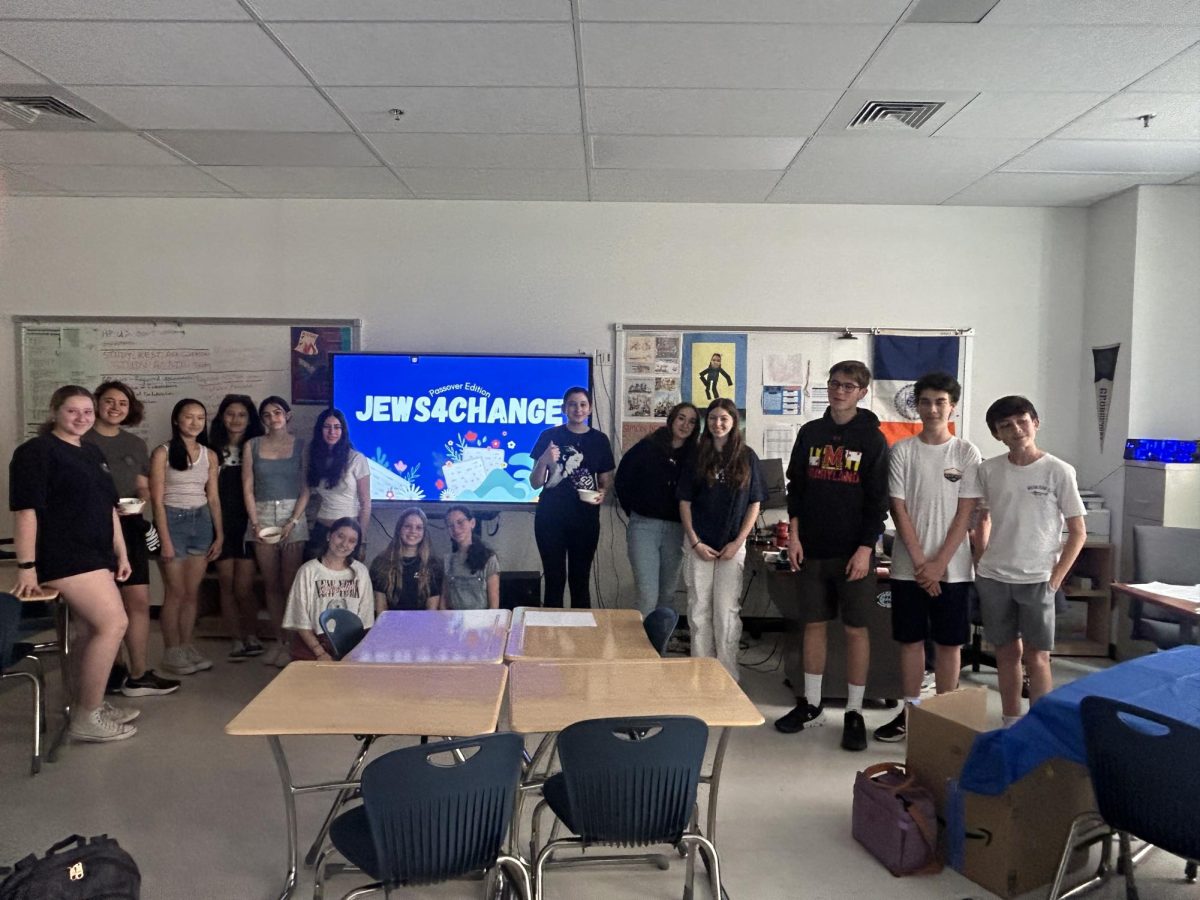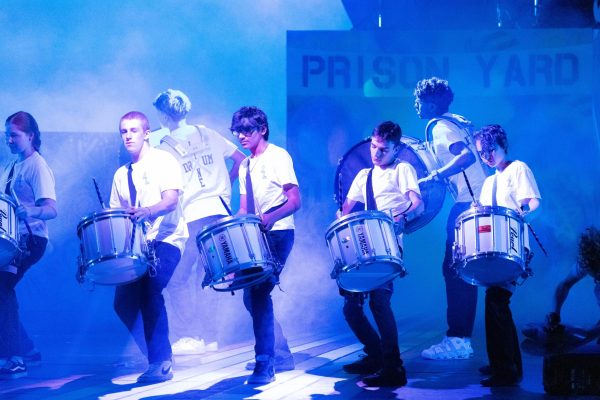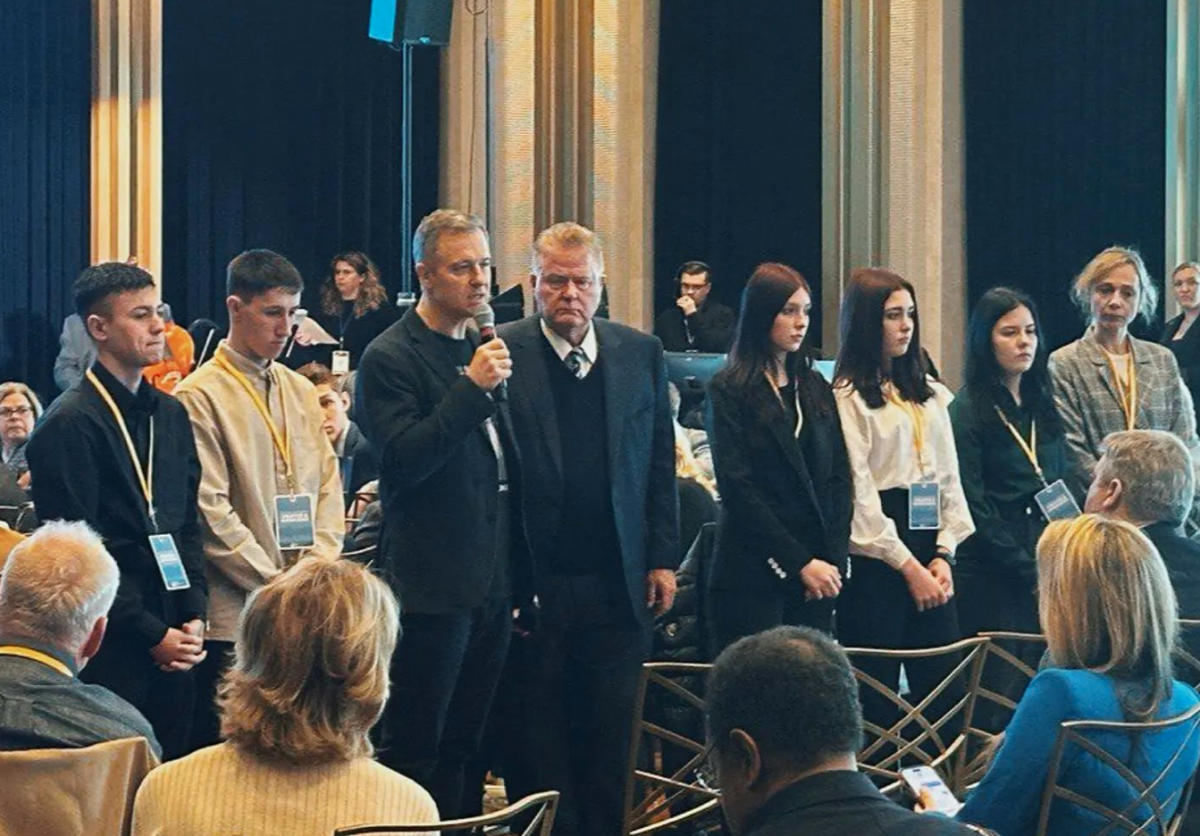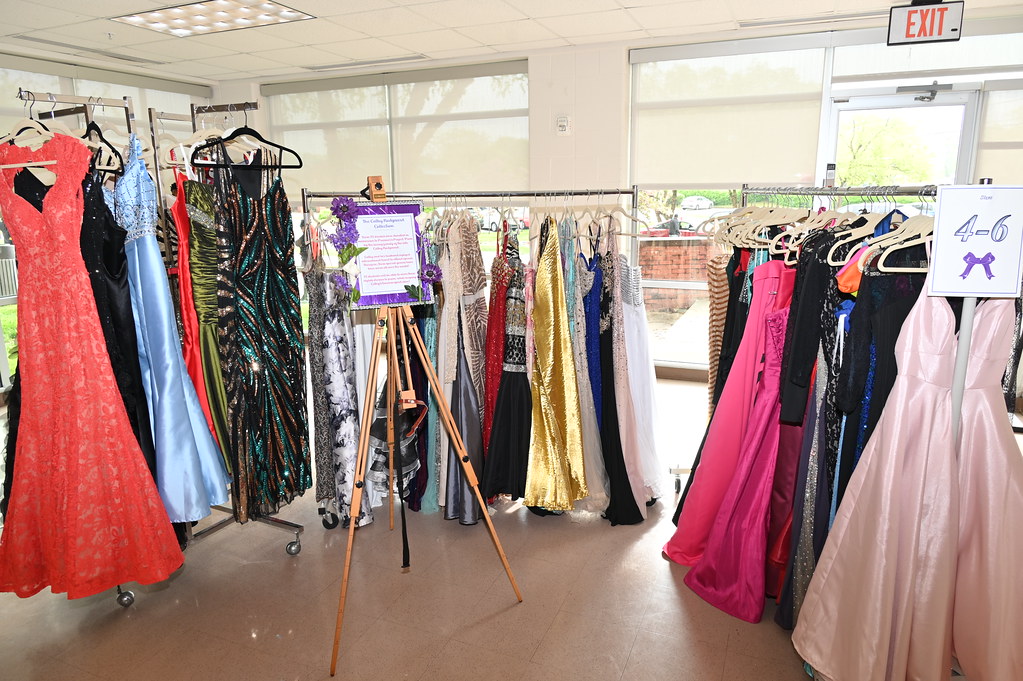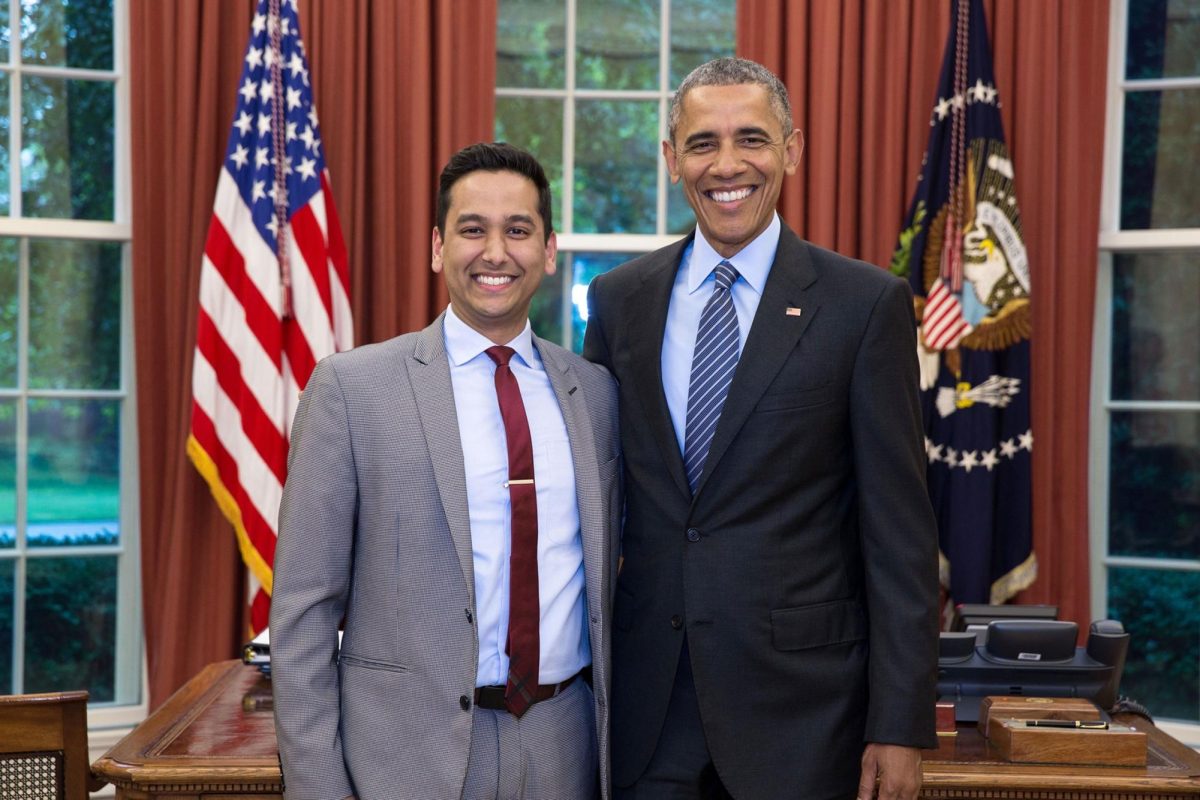Seeing a teacher in public is already somewhat cringe-worthy. Now teachers have started popping up on your Twitter, reminding you of tests the next day or talking about a new club at Whitman.
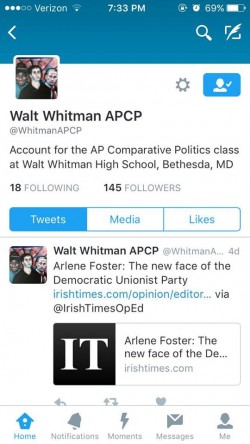
Some teachers now use social media to enhance the learning experience in their classroom. Strong relationships between student and faculty are encouraged, but if the relationship becomes too personal the situation can become murky territory.
Despite some concerns about how acceptable social media is in the classroom, Whitman staff have implemented it in their own ways to benefit students.
For instance, social studies teacher Andrew Sonnabend has brought Twitter to room A223 in the form of the Twitter profile @WhitmanAPCP.
“I got tired of starting class with ‘Hey, did you guys see this article in the Washington Post,’” Sonnabend said. “So I decided to set up a Twitter account and if the students really wanted to be up on these articles there would be a place for them.”
Sonnabend keeps the page updated with the latest news in foreign affairs, especially those that relate to what his Comparative Politics class is studying at the time. Followers can then keep up with world news and occasionally get wind of a pop quiz.
Principal Alan Goodwin also has a popular Twitter account, with over 1,500 followers, including students and community members. He posts pictures and updates about school-related events.
“I get positive reinforcement because it reaffirms what they’ve done and their activity,” Goodwin said. “I love that it lets me advertise the good stuff the school does outside of the classroom.”
English teacher Danielle Fus uses a personal Facebook account to keep in touch with seniors and alumni.
“I think that being on Facebook personalizes me to students,” Fus said. “At most it’s a demonstration, a healthy relationship model.”
Fus also uses Facebook to keep up with the club she sponsors, Fashion Society, and to talk to seniors who inform her about college recommendation deadlines. Chatting on Facebook is more quick and direct than emailing—not many students check email regularly.
“I think I serve as a reminder of the effective and ineffective uses of social media,” Fus said. “It’s just as effective as sending an email but I guess it’s easier for them to contact me.”
Though many teachers use social media in the classroom, there is still discussion about how this more personal relationship can be used effectively.

This year, MCPS updated its policy on use of social media, which includes the use of emails between teachers and students. The MCPS Employee Code of Conduct states that “teachers are not allowed to use personal email accounts and social media networking sites to communicate or become ‘friends’ with students.
However, accounts used for purely academic purposes, such as @WhitmanAPCP, are permitted because they are directly affiliated with the school. Administration has denounced the use of Facebook by teachers to give personal advice and have personal conversations with students.
“You always have to be cognizant between an adult and a student and is it getting too personal,” Goodwin said. “If the teacher is asked to give personal advice, the teacher should refer the student to the school counselor instead.”
Social media allows for more learning to happen at home, and gives more opportunities for students to express their views on a topic covered in class.
A Babson College survey based on a sample of college professors throughout the U.S. revealed that teachers have an impressive rate of social media use in their classrooms: over 90 percent of all faculty are using social media in courses they’re teaching.
Technological advancement for education stops at Edline and Google Classroom in MCPS because of concerns of integrity and the murky areas that come with using personal accounts.
The Babson survey also found that the two biggest concerns about faculty use of social media were privacy and integrity.
Social media use in the classroom is part of the future, but concerns need to be addressed in order for it to be implemented, Sonnabend said.
“It plays into the natural behaviors of the students,” Sonnabend said. “Even though there are a lot of gray areas where teachers can get into trouble, that can be dealt with on a case-by case basis.”





